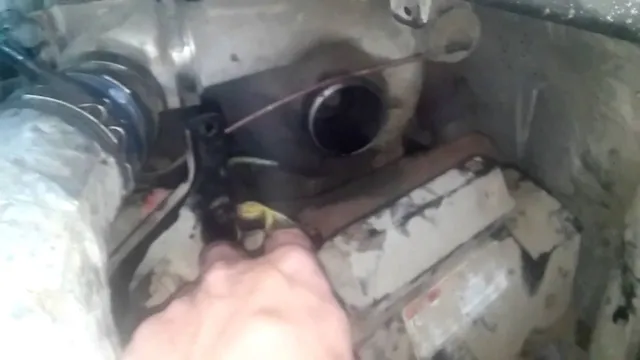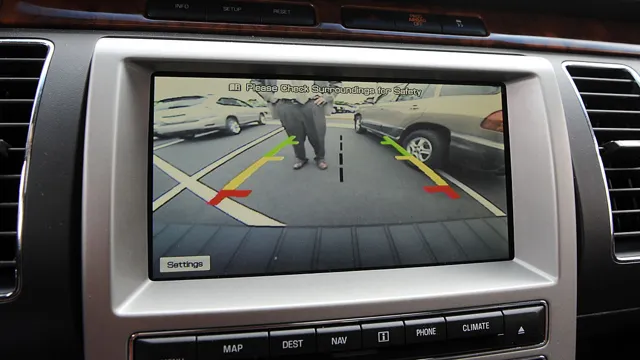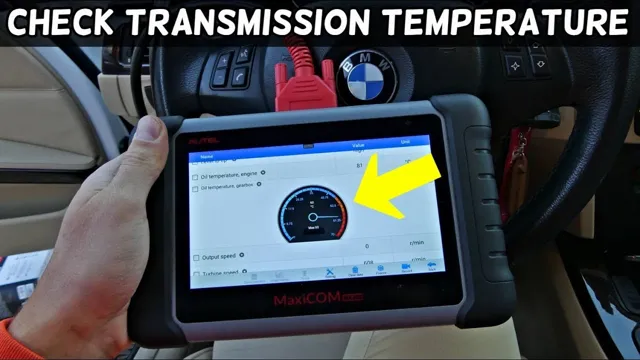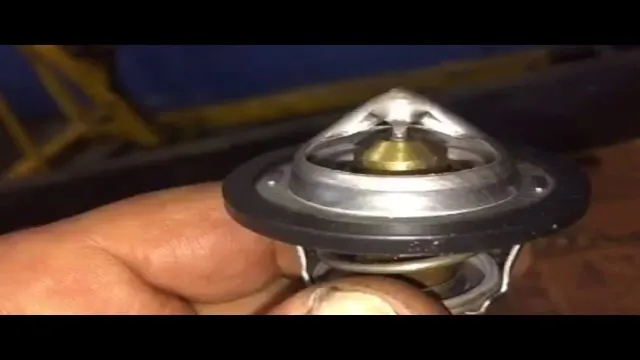Mastering the Art of Resolving Excessive Crankcase Pressure: A Comprehensive Guide
Is your car suddenly consuming more oil than usual? Do you notice a lot of smoke coming out of the exhaust pipe? If yes, then your vehicle might be suffering from excessive crankcase pressure. There’s no need to panic as it’s a common problem that many car owners face. Excessive crankcase pressure can cause significant damage to your car’s engine components and affect its performance.
But don’t worry; fixing it is not as complicated as you may think. In this blog post, we’ll provide you with a guide to fix excessive crankcase pressure to get your car back to its optimal performance.
What Is Crankcase Pressure?
Excessive crankcase pressure is caused by a buildup of gasses within the engine’s crankcase. This can lead to a number of problems, including oil leaks and engine damage. The good news is that there are a few things you can do to fix excessive crankcase pressure.
One of the easiest and most effective solutions is to check and replace your engine’s PCV valve. This small component plays a crucial role in regulating crankcase pressure, and if it’s not functioning properly, excessive pressure can build up. Other possible causes of excessive crankcase pressure include a clogged breather filter or a faulty oil separator.
Whatever the cause of your crankcase pressure issue, it’s important to address it quickly to avoid further damage to your engine.
Explanation of crankcase pressure and its causes
Crankcase pressure occurs when there is an imbalance of pressure within the engine’s crankcase. This can happen for a variety of reasons, such as a clogged breather or a malfunctioning PCV valve. When crankcase pressure builds up, it can cause oil leaks and engine damage.
The pressure is caused by the movement of pistons and the heating and cooling of the engine, which can cause air to expand and contract in the crankcase. Regular maintenance, including changing the PCV valve and cleaning the breather, can help prevent crankcase pressure from becoming a problem. If you notice oil leaks or unusual noises coming from your engine, it’s important to have it checked by a professional mechanic to prevent further damage.

Symptoms of Excessive Crankcase Pressure
Excessive crankcase pressure can cause a range of issues in your vehicle. Symptoms of this problem include oil leaks, white or blue smoke from the exhaust, and decreased engine performance. You may also notice that the engine is making unusual noises or running rough.
To fix excessive crankcase pressure, there are several steps you can take. First, check the PCV valve and make sure it is functioning properly. If it is faulty, replace it immediately.
You may also need to clean or replace the air filter, as a clogged filter can contribute to this problem. If these steps do not resolve the issue, you may need to replace the piston rings or valve seals. It’s important to address excessive crankcase pressure promptly to prevent further damage to your engine.
With proper maintenance, you can keep your vehicle running smoothly and avoid costly repairs down the road.
How to identify high pressure in the crankcase
If you notice any of the following symptoms in your vehicle, it is likely that there is excessive crankcase pressure: oil leaks, smoke from the exhaust, reduced gas mileage, engine misfiring, and a weakened engine performance. If these indicators persist, it can cause harm to your engine and negatively impact its lifespan. There are several causes for high pressure in the crankcase, including worn piston rings, a damaged head gasket, a clogged PCV valve, or excessive blow-by from the engine’s cylinders.
Identifying the root cause of the issue is essential. Ignoring this problem can lead to catastrophic engine failure, so it’s best to address the issue as soon as possible. Regular vehicle maintenance, checking your oil levels, and replacing your air filter can help prevent excessive crankcase pressure from becoming a larger problem.
Effects on engine performance and longevity
Excessive crankcase pressure can have severe effects on an engine’s overall performance and longevity, making it critical to catch any symptoms early on. One of the most common signs of excessive pressure is increased oil consumption, as the excess pressure can force oil past seals and into the combustion chamber, leading to fouling and reduced efficiency. Other potential symptoms include overly noisy engines, rough idling, and even engine misfires.
Ignoring these symptoms can ultimately lead to significant damage, including blown gaskets, failed seals, and even catastrophic engine failure. It’s important to have a professional mechanic diagnose these symptoms as early as possible to prevent further damage and ensure that the engine operates correctly and efficiently.
Causes of Excessive Crankcase Pressure
If your engine is experiencing excessive crankcase pressure, there could be several underlying causes. One potential culprit is a clogged or dirty PCV valve, which can prevent proper ventilation of the engine’s crankcase. Another possible issue could be a faulty piston ring or worn cylinder walls, which allow combustion gases to leak into the crankcase and increase pressure.
Additionally, a damaged or clogged breather filter can hinder the release of pressure from the crankcase. To fix excessive crankcase pressure, you should first identify the root cause and then take the appropriate steps to address it. This may involve replacing the PCV valve, repairing or replacing the piston rings or cylinder walls, or cleaning or replacing the breather filter.
By taking proactive steps to address excessive crankcase pressure, you can help ensure the longevity and reliability of your engine.
Faulty PCV valve and other components that contribute
Excessive crankcase pressure is a common issue in many vehicles, and it can cause serious engine problems if left unchecked. One of the main causes of excessive pressure is a faulty PCV valve. This valve is responsible for regulating the flow of gases in and out of the crankcase, and if it becomes clogged or fails, it can cause pressure to build up.
Other components that contribute to this issue include worn or damaged piston rings, faulty gaskets, or a malfunctioning turbocharger. When these parts fail, pressure can increase and cause oil leaks, engine knocking, or even catastrophic engine failure. That’s why it’s important to have your vehicle inspected regularly by a trained mechanic and to address any issues as soon as they arise.
By doing so, you can ensure that your engine stays healthy and performs at its best for years to come.
Worn piston rings and other internal engine issues
Excessive crankcase pressure can be caused by worn piston rings and other internal engine issues. When piston rings are worn, they no longer seal tightly against the cylinder walls, allowing combustion gases to escape and enter the crankcase. This creates pressure and can lead to a variety of problems, including engine damage and oil leaks.
Other internal engine issues, such as a clogged PCV valve or damaged breather system, can also contribute to excessive crankcase pressure. It’s important to address these issues promptly to prevent further damage to your engine. Regular maintenance and inspection can help catch problems before they become serious, so be sure to keep up with your vehicle’s recommended service schedule.
How to Fix Excessive Crankcase Pressure
Experiencing excessive crankcase pressure can be quite alarming, but fear not as there are ways to fix it. First things first, check for any clogs or blockages in the PCV system such as the PCV valve and hoses. These parts play a critical role in regulating crankcase pressure, so it’s important to ensure they are functioning correctly.
If they appear to be in good condition, you may need to inspect the engine for any damaged or worn-out components such as piston rings or cylinder walls. These issues can cause blow-by, which forces oil and combustion gases into the crankcase, resulting in increased pressure. Replacing any faulty components should solve the problem and restore proper engine function.
Regular maintenance and check-ups can also help prevent excessive crankcase pressure in the future.
Troubleshooting tips and repairs for different causes
Are you experiencing excessive crankcase pressure and don’t know what to do? Excessive crankcase pressure is caused by a build-up of pressure in the engine’s crankcase, which can be detrimental to your vehicle’s performance. One of the main causes of this situation is a clogged or dirty PCV valve, which prevents the engine from venting properly. Another possible culprit could be excessive blow-by, which refers to combustion gases escaping past the piston rings, creating pressure in the crankcase.
To fix the problem, you should start by replacing the PCV valve or cleaning it if possible. If that doesn’t work, you may need to check the engine’s pistons, piston rings, or even the head gasket, to prevent further damage. Don’t forget to check your oil levels regularly, as excessive crankcase pressure can cause oil to leak or even blow out of the engine, leading to further complications.
With the right approach, you can fix excessive crankcase pressure and keep your vehicle running smoothly.
Preventive measures to avoid future issues
Excessive crankcase pressure can be a problem for engines, leading to various issues such as oil leaks, reduced power, and engine damage. One preventive measure is to ensure regular maintenance of the engine, including oil changes and replacing the air filter. Another way to fix excessive crankcase pressure is to check the PCV valve and replace it if necessary.
Additionally, replacing worn-out engine components such as piston rings and valve seals can prevent crankcase pressure buildup. It’s essential to also avoid overfilling the engine oil, as this can cause additional pressure buildup. By taking these preventive measures, you can avoid future issues and keep your engine running smoothly and efficiently.
Remember, keeping up with regular maintenance is crucial for preventing engine problems and prolonging the lifespan of your engine.
Conclusion
To fix excessive crankcase pressure, it’s like unclogging your arteries – you need to give your engine a healthy diet of clean air and oil. Check and clean your PCV valves, inspect your breather system, and replace faulty components to ensure that your engine is breathing easy. With a little bit of TLC, your engine will purr like a kitten and you’ll be back on the road in no time!”
FAQs
What causes excessive crankcase pressure?
Excessive crankcase pressure can be caused by internal engine problems such as worn piston rings, valve seals, or a clogged PCV valve.
What are the symptoms of excessive crankcase pressure?
Symptoms of excessive crankcase pressure include blue or gray smoke coming from the tailpipe, oil leaks, loss of power, and increased oil consumption.
Can excessive crankcase pressure damage the engine?
Yes, excessive crankcase pressure can lead to engine damage by causing oil leaks, blown gaskets, and piston ring damage.
How do you fix excessive crankcase pressure?
To fix excessive crankcase pressure, you should first diagnose the root cause of the problem. This may involve replacing worn parts such as piston rings, valves, or the PCV valve. Additionally, installing a catch can or a breather filter can help reduce pressure buildup within the crankcase.






